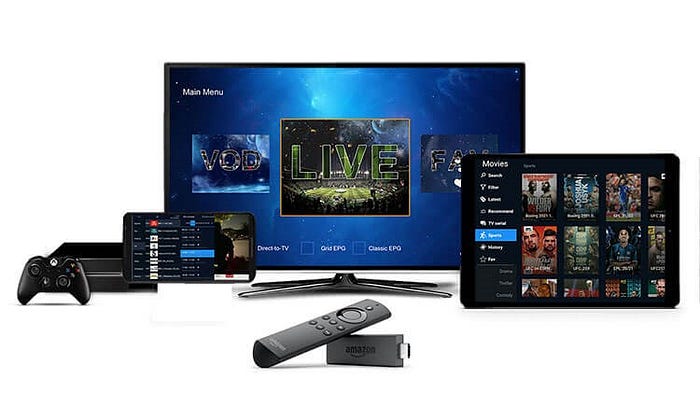internet protocol tv or IPTV (Internet Protocol Television) has surged over the past few years, offering an alternative to traditional cable and satellite TV. If you’re considering buying IPTV services, there are key factors you need to consider to ensure you’re getting the best experience. Here are the top five things you should know before making your purchasing IPTV services.
Table of Contents
Introduction to buy IPTV Services
watching has come a long way from traditional cable subscriptions. One of the new front in entertainment is IPTV services, where programs are delivered over the internet rather than through traditional broadcast means. As the popularity of IPTV continues to rise, it becomes increasingly important to understand the essential components before making a purchase. Let’s delve into five key factors you should know to ensure a satisfying IPTV experience.
- Understanding IPTV: What It Is and How It Works
1.1 Defining IPTV
IPTV stands for Internet Protocol Television, and it essentially refers to streaming television content over the internet. Unlike traditional cable, which delivers programming through coaxial cables, IPTV uses your internet connection to provide content. This shift means users can access a much wider variety of content than traditional services would allow.
1.2 The Technical Setup
To get started with IPTV, you’ll need a few basic pieces of equipment. This includes a compatible device such as a smart TV, streaming box, or even your smartphone. Equally crucial is a reliable internet connection; usually, a speed of at least 10 Mbps is recommended for a seamless viewing experience. Don’t forget to consider your bandwidth as well—if multiple devices are streaming at once, you might need a higher speed plan.
1.3 Content Delivery Methods
IPTV can deliver content in two primary ways: live streaming and on-demand. Live streaming lets you watch shows as they air, while on-demand allows you to access content at your convenience. Content is usually hosted on the service provider’s servers, making it accessible for users at any time.
- Evaluating Service Providers
2.1 Researching Reliability
Before you sign up, spend some time checking customer reviews and testimonials about various IPTV providers. A reliable service will generally boast a good uptime and stability. If many customers are complaining about frequent outages, it might be a red flag.
2.2 Comparing Features
Different IPTV services come with different bells and whistles. Some common features to look for include catch-up TV, cloud DVR, and the ability to record shows. Also, don’t underestimate a user-friendly interface—it can make a big difference in your day-to-day experience.
2.3 Legal Considerations
Unfortunately, not all IPTV services operate legally. It’s essential to understand the legality of the service you choose. Services that circumvent copyright laws, often referred to as “unauthorized providers,” can pose risks, including potential legal issues and lack of customer support.
- Pricing Structures and Packages
3.1 Understanding Different Pricing Models
IPTV services use various pricing models. Some operate on a subscription basis, while others allow pay-per-view options for specific events. Additionally, some services might charge a one-time fee for lifetime access, while others request monthly payments. Understanding these models can help you choose what fits your budget best.
3.2 Hidden Costs and Add-Ons
When reviewing IPTV packages, be aware of potential hidden costs. These can include installation fees, equipment rental, or additional charges for premium channels. Always read the fine print in contracts to avoid surprises later.
3.3 Value for Money
Finally, it’s crucial to weigh the channel variety against the price. Some providers may seem affordable but offer a limited selection of channels. Look for promotions or discounts that can provide more value for your money.
- Customer Support and User Experience
4.1 Importance of Customer Support
Good customer support can make all the difference if problems arise. Check what support channels are available, such as chat, phone, or email. Quick response times and high customer satisfaction ratings can offer peace of mind.
4.2 User Interface and Experience
A simple and intuitive user interface can enhance your viewing experience dramatically. Ensure the IPTV platform you choose is compatible with the devices you own—whether it’s a smart TV, a tablet, or even your smartphone.
4.3 Trial Periods and Money-Back Guarantees
Look for services that offer trial periods or money-back guarantees. This allows you to try out the service without committing fully. Understanding refund policies also helps you make a more informed decision.
- Content Variety and Quality
5.1 Assessing Channel Lineups
When evaluating IPTV providers, check their channel lineups. The diversity of the channels offered is essential, especially if you’re interested in specific regions or languages.
5.2 Streaming Quality Standards
Quality matters! Look for services that offer good streaming standards, like varying resolutions from SD to HD and even 4K. Pay attention to how well the streaming holds up—buffering and lag can be significant inconveniences when watching your favorite show.
5.3 Special Features and Extras
Consider any special features that interest you, such as sports packages, movie channels, or international content. Some providers also offer premium add-ons which can enrich your viewing experience.
Conclusion
In summary, when you’re looking to buy an IPTV service, remember to check for reliability, evaluate providers, understand pricing structures, consider customer support, and assess content variety and quality. Take your time to research and compare options. A well-informed decision will yield a more enjoyable IPTV experience.
FAQs
What are the main advantages of using IPTV services?
IPTV services offer a wider variety of channels, flexibility in viewing—such as on-demand content, and often lower costs compared to traditional cable services.
Can I use IPTV on my existing smart TV?
Yes! Most smart TVs are compatible with IPTV services, allowing you to stream content seamlessly.
What should I do if I experience buffering issues?
Check your internet connection speed first. If it’s not the issue, reach out to your IPTV provider’s customer support for troubleshooting steps.
Are there IPTV services that offer free trials?
Yes, many IPTV providers offer free trials, allowing you to test their services before fully committing.
How can I ensure that I choose a legal IPTV service?
Research your chosen service’s reputation, look for customer reviews, and ensure they adhere to copyright laws to avoid issues with unauthorized providers.



